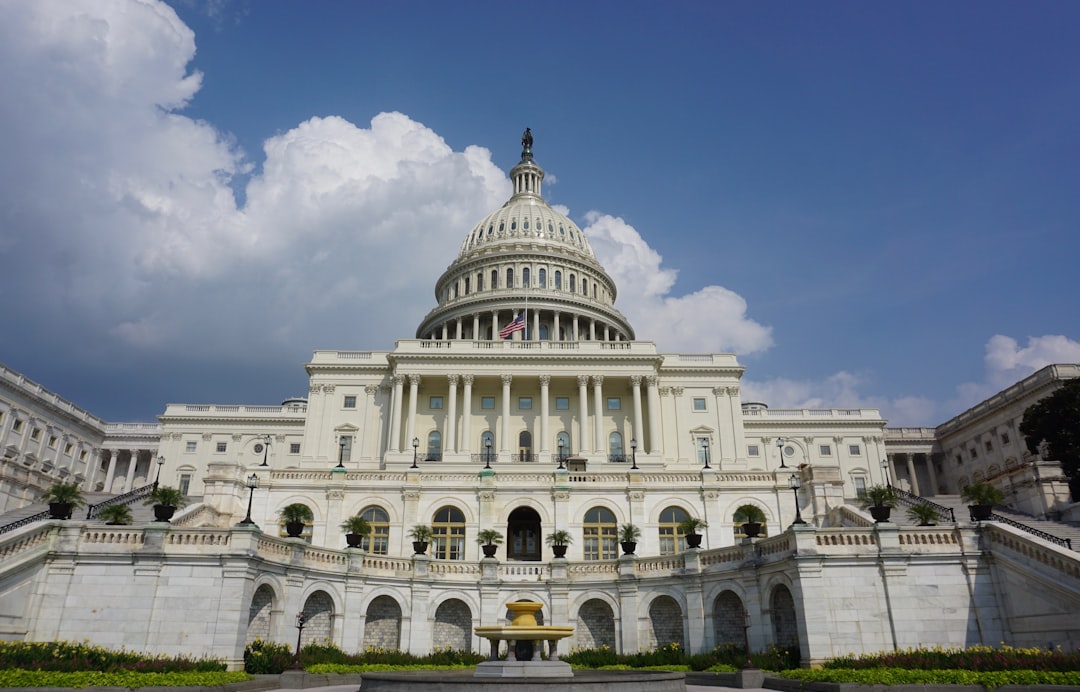The food industry is a vast and multifaceted sector that encompasses everything from agriculture to retail. Within this complex landscape, lobbying has emerged as a powerful tool for shaping policies that govern food production, distribution, and consumption. Food industry lobbying refers to the efforts made by various stakeholders—such as corporations, trade associations, and interest groups—to influence legislation and regulatory decisions that affect their interests.
This practice is not new; it has been a part of the political landscape for decades, but its implications have become increasingly significant in recent years as public awareness of health, sustainability, and food safety issues has grown. As the food industry continues to evolve, so too does the nature of its lobbying efforts. With the rise of social media and digital communication, the ways in which food companies engage with policymakers and the public have transformed.
This evolution has led to a more complex interplay between corporate interests and public health concerns, raising questions about the ethical implications of such lobbying activities.
Key Takeaways
- Food industry lobbying has a significant impact on shaping food policy and government regulations.
- Tactics used by the food industry in lobbying efforts include funding political campaigns, forming industry coalitions, and conducting public relations campaigns.
- Food industry lobbying has a negative impact on public health by influencing regulations and policies that prioritize industry profits over public well-being.
- Case studies of successful food industry lobbying efforts demonstrate the influence of money and power in shaping food policy.
- Advocacy and activism play a crucial role in counterbalancing the influence of food industry lobbying and promoting public health and ethical considerations.
The Power of Lobbying in Shaping Food Policy
Lobbying plays a crucial role in shaping food policy by providing a platform for industry voices to be heard in the halls of power. The food industry is characterized by a diverse array of stakeholders, each with its own agenda and priorities. These stakeholders often employ lobbyists to advocate on their behalf, ensuring that their perspectives are considered during the policymaking process.
The power of lobbying lies in its ability to influence decision-makers through a combination of information dissemination, relationship-building, and strategic communication. One of the most significant aspects of lobbying is its capacity to frame issues in ways that resonate with policymakers and the public. By presenting data, research findings, and expert opinions, lobbyists can shape the narrative around food-related issues such as nutrition, safety regulations, and agricultural practices.
This framing can lead to favorable outcomes for the industry, as policymakers may be swayed by compelling arguments that align with their own interests or the interests of their constituents. Consequently, the power of lobbying extends beyond mere persuasion; it can fundamentally alter the landscape of food policy.
Tactics Used by the Food Industry in Lobbying Efforts

The tactics employed by the food industry in its lobbying efforts are varied and often sophisticated. One common approach is the use of grassroots campaigns designed to mobilize public support for specific policies or initiatives. By engaging consumers and leveraging social media platforms, food companies can create a groundswell of support that puts pressure on lawmakers to act in favor of their interests.
These campaigns often highlight personal stories or testimonials that resonate with the public, making it easier for individuals to connect emotionally with the cause. In addition to grassroots efforts, the food industry frequently relies on direct lobbying strategies that involve one-on-one meetings with legislators and their staff. During these interactions, lobbyists present tailored information that aligns with the interests of specific lawmakers, often emphasizing economic benefits or job creation associated with particular policies.
Furthermore, the food industry may also engage in coalition-building, partnering with other organizations or sectors to amplify their message and increase their influence. By pooling resources and expertise, these coalitions can present a united front that is more difficult for policymakers to ignore.
The Impact of Food Industry Lobbying on Public Health
| Metrics | Data |
|---|---|
| Obesity Rates | Increasing in countries with strong food industry lobbying |
| Government Policies | Often influenced by food industry lobbying, leading to less strict regulations |
| Public Health Campaigns | Challenged by food industry lobbying, leading to less emphasis on healthy eating |
| Research Funding | Redirected by food industry lobbying to focus on industry-friendly studies |
The impact of food industry lobbying on public health is a contentious issue that has garnered significant attention from researchers, policymakers, and advocacy groups alike. On one hand, proponents argue that lobbying efforts can lead to positive outcomes by promoting policies that support innovation, economic growth, and consumer choice. For instance, lobbying for less restrictive regulations may enable companies to develop new products that cater to evolving consumer preferences, potentially improving overall dietary diversity.
Conversely, critics contend that food industry lobbying often prioritizes corporate profits over public health considerations.
By exerting influence over policymakers, the food industry may successfully block or weaken regulations designed to protect public health, leading to increased rates of obesity, diabetes, and other diet-related diseases.
The tension between economic interests and health outcomes underscores the need for a more balanced approach to food policy that prioritizes consumer well-being.
Case Studies of Successful Food Industry Lobbying Efforts
Several case studies illustrate the effectiveness of food industry lobbying efforts in shaping policy outcomes. One notable example is the successful campaign by beverage companies to defeat proposed soda taxes in various jurisdictions across the United States. Through a combination of grassroots mobilization, targeted advertising campaigns, and direct lobbying efforts, these companies were able to sway public opinion against such taxes by framing them as regressive measures that disproportionately affect low-income consumers.
As a result, many proposed soda taxes were either defeated or significantly weakened. Another case study involves the dairy industry’s lobbying efforts to influence school nutrition standards. In response to proposed regulations aimed at reducing sugar and fat content in school meals, dairy organizations launched campaigns emphasizing the nutritional benefits of dairy products.
By leveraging relationships with key lawmakers and presenting research supporting their claims, they successfully lobbied for exemptions that allowed flavored milk to remain available in schools. These examples highlight how strategic lobbying can lead to favorable policy outcomes for the food industry while raising questions about the implications for public health.
The Role of Money in Food Industry Lobbying

Money plays an undeniable role in food industry lobbying efforts, influencing both the scale and effectiveness of these initiatives. The financial resources available to corporations allow them to hire experienced lobbyists, fund extensive advertising campaigns, and engage in grassroots mobilization efforts. This financial clout can create an uneven playing field where larger corporations dominate the conversation while smaller entities struggle to make their voices heard.
Moreover, campaign contributions are another avenue through which money influences lobbying efforts. By donating to political campaigns or political action committees (PACs), food industry stakeholders can cultivate relationships with lawmakers who may be sympathetic to their interests. This financial support can lead to increased access and influence over policy decisions, raising concerns about potential conflicts of interest and the integrity of the democratic process.
As such, understanding the role of money in food industry lobbying is essential for comprehending its broader implications for governance and public health.
The Influence of Food Industry Lobbying on Government Regulations
Food industry lobbying has a profound impact on government regulations that govern everything from food safety standards to labeling requirements. Through their lobbying efforts, industry stakeholders can shape regulatory frameworks in ways that align with their business interests while potentially undermining consumer protections. For instance, when it comes to labeling requirements for genetically modified organisms (GMOs), powerful agricultural companies have successfully lobbied against mandatory labeling laws in several states.
This influence extends beyond labeling; it also affects regulations related to nutrition standards in schools and marketing practices aimed at children. By advocating for less stringent regulations or exemptions from existing rules, food companies can maintain practices that may not align with public health goals. The result is a regulatory environment that often prioritizes corporate interests over consumer safety and well-being.
The Ethical Implications of Food Industry Lobbying
The ethical implications of food industry lobbying are complex and multifaceted. On one hand, proponents argue that lobbying is a legitimate form of advocacy that allows businesses to express their interests and contribute to the policymaking process. They contend that when done transparently and responsibly, lobbying can lead to informed decision-making that benefits society as a whole.
On the other hand, critics raise concerns about the potential for undue influence and conflicts of interest inherent in food industry lobbying practices. When corporate interests dominate the conversation around food policy, there is a risk that public health considerations may be sidelined in favor of profit-driven agendas. This raises ethical questions about accountability and transparency within the lobbying process and highlights the need for greater scrutiny of how food policies are developed and implemented.
The Counterbalance: Advocacy and Activism Against Food Industry Lobbying
In response to the powerful influence of food industry lobbying, advocacy groups and grassroots movements have emerged as counterbalances seeking to promote public health and consumer rights. These organizations work tirelessly to raise awareness about issues such as nutrition labeling, marketing practices targeting children, and access to healthy foods in underserved communities. By mobilizing public support and engaging in strategic advocacy efforts, they aim to hold policymakers accountable and push for reforms that prioritize consumer well-being.
Activism against food industry lobbying often takes various forms, including public campaigns, petitions, and collaborations with like-minded organizations. Social media has become an essential tool for these movements, allowing them to reach wider audiences and amplify their messages effectively. Through these efforts, advocates strive not only to counteract corporate influence but also to foster a more equitable food system that prioritizes health over profit.
The Future of Food Industry Lobbying and Its Potential Impact
As society grapples with pressing issues related to food security, sustainability, and public health, the future of food industry lobbying remains uncertain yet critical. With increasing scrutiny from consumers and advocacy groups alike, companies may need to adapt their lobbying strategies to align more closely with evolving public expectations regarding transparency and accountability. This shift could lead to more collaborative approaches where industry stakeholders work alongside public health advocates to develop policies that benefit both parties.
Moreover, emerging trends such as plant-based diets and sustainable agriculture practices may reshape the landscape of food industry lobbying in the coming years. As consumer preferences shift towards healthier and more environmentally friendly options, companies may find themselves under pressure to advocate for policies that reflect these values rather than solely focusing on traditional profit-driven agendas. The potential impact of these changes could be profound—leading not only to healthier populations but also fostering a more sustainable food system overall.
Navigating the Complexities of Food Industry Lobbying
Navigating the complexities of food industry lobbying requires a nuanced understanding of its dynamics and implications for society at large. While lobbying can serve as a legitimate means for businesses to advocate for their interests, it also raises critical ethical questions about accountability and transparency in policymaking processes. As public awareness grows regarding issues related to health and sustainability within the food system, both advocates and industry stakeholders must grapple with their roles in shaping future policies.
Ultimately, fostering a balanced approach that prioritizes consumer well-being while allowing for legitimate business interests will be essential in addressing the challenges posed by food industry lobbying. By encouraging collaboration between various stakeholders—government officials, advocacy groups, consumers, and businesses—society can work towards creating a more equitable food system that benefits all parties involved. As this dialogue continues to evolve, it will be crucial for all voices to be heard in order to navigate the complexities inherent in food policy development effectively.
The food industry wields significant lobbying power, influencing policies and regulations that can impact public health and consumer choices. An insightful article on this topic can be found on Hey Did You Know This, which delves into the intricate dynamics of food industry lobbying and its implications. For a deeper understanding, you can read more about it by visiting this related article. This piece provides a comprehensive overview of how lobbying efforts shape the food landscape, often prioritizing industry interests over consumer well-being.
WATCH THIS! 🌭The 100-Year Scam That Invented Hot Dogs
FAQs
What is food industry lobbying power?
Food industry lobbying power refers to the influence and impact that food industry companies and organizations have on government policies and regulations through lobbying efforts. This can include influencing legislation, regulations, and public opinion to benefit the interests of the food industry.
How does food industry lobbying power affect government policies?
Food industry lobbying power can affect government policies by influencing lawmakers and regulatory agencies to create or change laws and regulations that benefit the interests of the food industry. This can include influencing food safety standards, labeling requirements, agricultural subsidies, and trade policies.
What are some examples of food industry lobbying power in action?
Examples of food industry lobbying power in action include efforts to influence the labeling of genetically modified organisms (GMOs), regulations on sugar and soda taxes, and agricultural subsidies for certain crops. The food industry also lobbies on issues related to food safety, advertising to children, and international trade agreements.
How does food industry lobbying power impact public health?
Food industry lobbying power can impact public health by influencing policies that may prioritize industry profits over public health concerns. This can include efforts to weaken regulations on unhealthy food products, resist labeling requirements, and block efforts to promote healthier eating habits.
What are some criticisms of food industry lobbying power?
Critics of food industry lobbying power argue that it can lead to policies that prioritize industry profits over public health and environmental concerns. They also raise concerns about the influence of industry on scientific research, marketing to children, and the impact on small-scale farmers and food producers.
